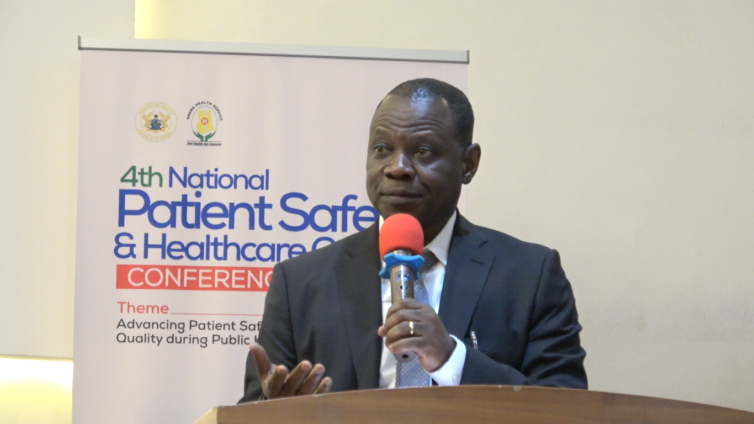The Ghana Health Service (GHS) has declared an end to the Lassa Fever (LF) outbreak recorded in the country in February this year.
This follows the elapse of the mandatory 42-day period since the recovery of the last detected case as stipulated by the World Health Organisation (WHO) to declare the outbreak over.
A statement signed and issued by the Director-General, Dr Patrick Kuma-Aboagye, in Accra said, “The maximum follow-up period of 42 days has elapsed since the last confirmed case of Lassa Fever was discharged on March 10, 2023, indicating the end of the outbreak.”
“Subsequently, the GHS declares the end of the Lassa Fever outbreak in line with the WHO-recommended mandatory 42 days post-Lassa Fever surveillance countdown period from when the last case was discharged,” it said.
Dr Kuma-Aboagye cautioned the public, however, to reduce contact with wildlife especially rats to avert possible disease spread.
“The public is entreated to store leftover foods appropriately in order to prevent rats from coming into contact with them, improve cleanliness in homes especially kitchens, avoid direct and indirect or close contacts with persons suspected of having Lassa Fever or any other infectious disease and undertake regular hand washing after to avoid infections,” he advised.
Turning attention to healthcare workers, the D-G implored them to strictly apply the universal infection prevention and control measures at all times, including wearing of gloves and other appropriate personal protective equipment while taking care of patients.
“We wish to reassure the public that the government and development partners through the Ministry of Health are supporting the GHS and other agencies in building a resilient health system to withstand all future outbreaks.
We however, appeal to the public to report to the nearest health facility on time for proper medical attention whenever they feel unwell,” he advised.
Data from the GHS indicates that 27 cases of LF were confirmed in Ghana between February and March this year including one death.
Initial cases of the disease were confirmed by the Noguchi Memorial Institute for Medical Research with about 95 contacts traced to the identified cases.
Lassa fever is a type of viral haemorrhagic fever (VHF) that occurs in parts of West Africa. The incubation period is 6-21 days. The onset of LF illness is often gradual, with non-specific signs and symptoms and commonly presents with fever, general weakness and malaise at the early onset.
In severe cases, infected persons may bleed from the mouth, nose or in the stomach. Death usually occurs within 14 days of infection in fatal cases.
Ghana recorded its first case of LF in 2011.
Latest Stories
-
Joy FM Prayer Summit for Peace ends in electrifying worship and prayer
2 hours -
The Conscience of Leadership: A call to President Akufo-Addo on Ghana’s environmental devastation
2 hours -
Ghanaian youth unaware of their right to hold politicians accountable – Youth Bridge Foundation
3 hours -
Judge delays Trump sentencing for a third time
3 hours -
2024 WAFCON: Ghana drawn against defending champions South Africa in Group C
4 hours -
Photos from DW-JoyNews street debate on ‘galamsey’
5 hours -
Mimmy Yeboah: Blending heritage with global sophistication, confidence redefined through couture
5 hours -
100 Most Influential People Awards 2024: Brain Hill International School’s Director Mary Anane Awuku honoured
5 hours -
Akufo-Addo commissions 97-km Tema-Mpakadan railway line
5 hours -
Majority requests recall of Parliament
6 hours -
Kanzlsperger and Professor Quartey support WAFA with medical Donation
6 hours -
Gideon Boako donates 10 industrial sewing machines to Yamfo Technical Institute
6 hours -
‘Golden Boy’ Abdul Karim Razak honored at WAFU-B general assembly
6 hours -
Buipewura Jinapor secures Vice Presidential position in National House of Chiefs with record votes
6 hours -
2024 election: I want results to come out like ‘milk and honey’ – Toobu
6 hours

